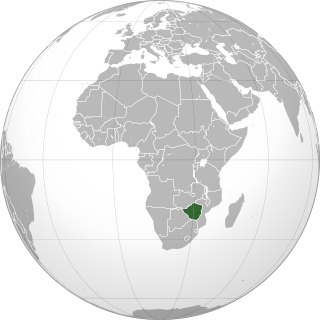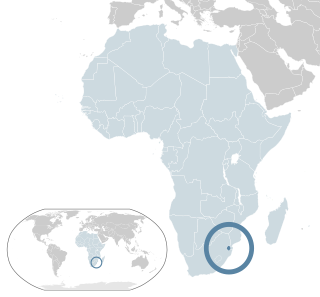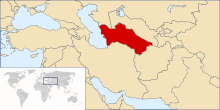
Lesbian, gay, bisexual, and transgender (LGBTQ) people in Iran face severe challenges not experienced by non-LGBTQ residents. Sexual activity between members of the same sex is illegal and can be punishable by death, and people can legally change their assigned sex only through sex reassignment surgery. Currently, Iran is the only country confirmed to execute gay people, though death penalty for homosexuality might be enacted in Afghanistan.

Lesbian, gay, bisexual, and transgender (LGBTQ) people in Ghana face severe challenges not experienced by non-LGBT residents. Sexual acts between males have been illegal as "unnatural carnal knowledge" in Ghana since the colonial era. The majority of Ghana's population hold anti-LGBT sentiments. Physical and violent homophobic attacks against LGBT people occur, and are often encouraged by the media and religious and political leaders. At times, government officials, such as police, engage in such acts of violence. Young gay people are known to be disowned by their families and communities and evicted from their homes. Families often seek conversion therapy from religious groups when same-sex orientation or non-conforming gender identity is disclosed; such "therapy" is reported to be commonly administered in abusive and inhumane settings.
Gay-friendly or LGBT-friendly places, policies, people, or institutions are those that are open and welcoming to gay or LGBTQ people. They typically aim to create an environment that is supportive, respectful, and non-judgmental towards the LGBT community. The term "gay-friendly" originated in the late 20th century in North America, as a byproduct of a gradual implementation of gay rights, greater acceptance of LGBT people in society, and the recognition of LGBT people as a distinct consumer group for businesses.
Section 377 is a British colonial penal code that criminalized all sexual acts "against the order of nature". The law was used to prosecute people engaging in oral and anal sex along with homosexual activity. As per a Supreme Court Judgement since 2018, the Indian Penal Code Section 377 is used to convict non-consensual sexual activities among homosexuals with a minimum of ten years’ imprisonment extended to life imprisonment. It has been used to criminalize third gender people, such as the apwint in Myanmar. In 2018, then British Prime Minister Theresa May acknowledged how the legacies of such British colonial anti-sodomy laws continue to persist today in the form of discrimination, violence, and even death.

Lesbian, gay, bisexual, and transgender (LGBTQ) people in the Islamic Emirate of Afghanistan face severe challenges not experienced by non-LGBT residents. Afghan members of the LGBT community are forced to keep their gender identity and sexual orientation secret, in fear of violence and the death penalty. The religious nature of the country has limited any opportunity for public discussion, with any mention of homosexuality and related terms deemed taboo.

Lesbian, gay, bisexual and transgender (LGBT) people in the United Arab Emirates face discrimination and legal challenges. Homosexuality is illegal in the United Arab Emirates (UAE) and under the federal criminal provisions, consensual same-sex sexual activity is punishable by imprisonment; extra-marital sexual activity between persons of different sexes is also illegal. In both cases, prosecution will only be brought if a husband or male guardian of one of the participants makes a criminal complaint. The penalty is a minimum of six months imprisonment; no maximum penalty is prescribed, and the court has full discretion to impose any sentence in accordance with the country's constitution.

Lesbian, gay, bisexual, and transgender (LGBT) people in Zimbabwe face legal challenges not experienced by non-LGBTQ residents. Since 1995, the Government of Zimbabwe has carried out campaigns against LGBT rights. Sodomy is classified as unlawful sexual conduct and defined in the Criminal Code as either anal sexual intercourse or any "indecent act" between consenting adults. Since 1995, the government has carried out campaigns against both homosexual men and women.

Lesbian, gay, bisexual, and transgender (LGBT) people in Botswana face legal issues not experienced by non-LGBTQ citizens. Both female and male same-sex sexual acts have been legal in Botswana since 11 June 2019 after a unanimous ruling by the High Court of Botswana. Despite an appeal by the government, the ruling was upheld by the Botswana Court of Appeal on 29 November 2021.

Lesbian, gay, bisexual, and transgender (LGBT) people face widespread prosecution in Uzbekistan. Same-sex sexual activity between men is illegal in Uzbekistan. The punishment is up to three years in prison. Uzbekistan is one of just two post-Soviet states in which male homosexual activity remains criminalised, along with Turkmenistan.

Lesbian, gay, bisexual, and transgender (LGBT) people in Somalia face severe challenges not experienced by non-LGBTQ residents. Consensual same-sex sexual activity is illegal for both men and women. In areas controlled by al-Shabab, and in Jubaland, capital punishment is imposed for such sexual activity. In other areas, where Sharia does not apply, the civil law code specifies prison sentences of up to three years as penalty. LGBT people are regularly prosecuted by the government and additionally face stigmatization among the broader population. Stigmatization and criminalisation of homosexuality in Somalia occur in a legal and cultural context where 99% of the population follow Islam as their religion, while the country has had an unstable government and has been subjected to a civil war for decades.

Lesbian, gay, bisexual, and transgender (LGBT) people in Eswatini have limited legal rights. According to Rock of Hope, a Swati LGBT advocacy group, "there is no legislation recognising LGBTIs or protecting the right to a non-heterosexual orientation and gender identity and as a result [LGBT people] cannot be open about their orientation or gender identity for fear of rejection and discrimination." Homosexuality is illegal in Eswatini, though this law is in practice unenforced. According to the 2021 Human Rights Practices Report from the US Department of State, "there has never been an arrest or prosecution for consensual same-sex conduct."

National Coalition for Gay and Lesbian Equality and Another v Minister of Justice and Others is a decision of the Constitutional Court of South Africa which struck down the laws prohibiting consensual sexual activities between men. Basing its decision on the Bill of Rights in the Constitution – and in particular its explicit prohibition of discrimination based on sexual orientation – the court unanimously ruled that the crime of sodomy, as well as various other related provisions of the criminal law, were unconstitutional and therefore invalid.

Lesbian, gay, bisexual, and transgender (LGBT) people in Zambia face significant challenges not experienced by non-LGBTQ residents. Same-sex sexual activity is illegal for both men and women in Zambia. Formerly a colony of the British Empire, Zambia inherited the laws and legal system of its colonial occupiers upon independence in 1964. Laws concerning homosexuality have largely remained unchanged since then, and homosexuality is covered by sodomy laws that also proscribe bestiality. Social attitudes toward LGBT people are mostly negative and coloured by perceptions that homosexuality is immoral and a form of insanity. However, in recent years, younger generations are beginning to show positive and open minded attitudes towards their LGBT peers.

Toonen v. Australia was a landmark human rights complaint brought before the United Nations Human Rights Committee (UNHRC) by Tasmanian resident Nicholas Toonen in 1994. The case resulted in the repeal of Australia's last sodomy laws when the Committee held that sexual orientation was included in the antidiscrimination provisions as a protected status under the International Covenant on Civil and Political Rights (ICCPR).

A sodomy law is a law that defines certain sexual acts as crimes. The precise sexual acts meant by the term sodomy are rarely spelled out in the law, but are typically understood and defined by many courts and jurisdictions to include any or all forms of sexual acts that are illegal, illicit, unlawful, unnatural and immoral. Sodomy typically includes anal sex, oral sex, manual sex, and bestiality. In practice, sodomy laws have rarely been enforced to target against sexual activities between individuals of the opposite sex, and have mostly been used to target against sexual activities between individuals of the same sex.

Lesbian, gay, bisexual, and transgender (LGBT) rights in Mauritius have expanded in the 21st century, although LGBT Mauritians may still face legal difficulties not experienced by non-LGBTQ residents. Prior to 2023, sodomy was criminalized by Section 250 of the Criminal Code. However, Mauritius fully decriminalized homosexuality in October 2023. Although same-sex marriage is not recognized in Mauritius, LGBT people are broadly protected from discrimination in areas such as employment and the provision of goods and services, making it one of the few African countries to have such protections for LGBT people. The Constitution of Mauritius guarantees the right of individuals to a private life.

The majority of the countries of the Commonwealth of Nations, formerly known as the British Commonwealth, still criminalise sexual acts between consenting adults of the same sex and other forms of sexual orientation, gender identity and expression. Homosexual activity remains a criminal offence in 29 of the 56 sovereign states of the Commonwealth; and legal in only 26.

Lesbian, gay, bisexuals, and transgender (LGBT) people in Transnistria face legal challenges not experienced by non-LGBT residents. The Pridnestrovian Moldavian Republic (PMR) is an unrecognised breakaway state with its own judicial system. For the legal situation for LGBT individuals in Moldova, which Transnistria is recognised by most states as belonging to, see LGBT rights in Moldova.

Capital punishment as a criminal punishment for homosexuality has been implemented by a number of countries in their history. It is a legal punishment in several countries and regions, all of which have sharia-based criminal laws, except for Uganda.

Some or all sexual acts between men, and less frequently between women, have been classified as a criminal offense in various regions. Most of the time, such laws are unenforced with regard to consensual same-sex conduct, but they nevertheless contribute to police harassment, stigmatization, and violence against homosexual and bisexual people. Other effects include exacerbation of the HIV epidemic due to the criminalization of men who have sex with men, discouraging them from seeking preventative care or treatment for HIV infection.


















